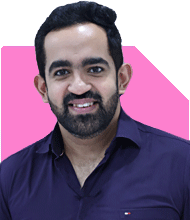Hi Sir , I am 48 yrs Old and have about 2.6 Cr Total Corpus in FD , NPS T1 and T2 , Gold investment etc. I have not investment anything in Mutual Funds or Shares . Also I have one House worth 1.3 Cr with rental Income of about 15 K per month currently . Also live in own house and have no debt . My current monthly expense if 13 lacs p.m and have already left my job so have no income. I will need about 40 lacs overall for my children education in next 3 years apart from monthly expenses . Can I decide to retire in this situation or may have some challenges in future .
Ans: Given your substantial savings and assets, I appreciate your careful planning thus far. However, without an active income, your challenge now is to ensure that your existing assets generate a sustainable income and continue growing for long-term security. Below, I’ll break down your retirement plan, child’s education funding, monthly expenses, investment options, and other important aspects to help you make an informed decision on whether retiring now is viable.
Retirement Planning and Asset Allocation
At 48, planning to retire requires a balance between growth and safety in investments. With Rs 2.6 crore across FDs, NPS, and gold, your portfolio is secure but could benefit from diversification into growth-oriented assets, such as mutual funds. This would help sustain your corpus for the next 20-30 years of retirement.
Asset Diversification: Fixed deposits and gold provide stability but limited growth. As you are not invested in mutual funds or shares, consider allocating a portion of your corpus to mutual funds for potential higher returns. This ensures you combat inflation and secure sufficient income over time.
Monthly Income Strategy: Currently, your rental income provides Rs 15,000, which is lower than your monthly expense of Rs 13 lakh. To meet this gap, look at creating a Systematic Withdrawal Plan (SWP) from mutual funds after a few years of compounding growth. SWPs in equity mutual funds provide tax efficiency and steady returns, especially if structured well with a Certified Financial Planner (CFP).
Meeting Educational Goals
You’ve indicated a requirement of Rs 40 lakh for children’s education in the next three years. Setting aside this amount in safe, short-term investments will ensure that the funds are available when needed.
Debt Funds: Consider debt mutual funds for these short-term goals. They can yield better post-tax returns than FDs, especially for three-year horizons. The redemption process is straightforward, and the returns are stable, though there might be minimal interest rate fluctuations.
Dedicated Education Corpus: Instead of dipping into the retirement corpus later, isolate the Rs 40 lakh you’ll need. This approach ensures that your primary retirement corpus remains untouched and can continue to grow.
Optimizing Monthly Expenses
Managing expenses within your available income sources is critical when retired. Here’s a closer look at expense management and maximizing income sources.
Systematic Withdrawal Plan (SWP): To cover monthly expenses, a well-planned SWP can give you regular income without depleting your corpus too quickly. This method leverages compounding returns while managing your tax liability efficiently, as SWP withdrawals from mutual funds have tax benefits when taken strategically.
Rental Income Optimization: Your rental income of Rs 15,000 per month is a good addition. Consider property management upgrades or modest renovations to increase this rental yield, potentially boosting your income stream.
Mutual Fund Investment and Growth
You have not yet ventured into mutual funds or shares, which are essential for compounding wealth over long horizons. Actively managed mutual funds offer advantages, especially with professional guidance from a CFP. Here are the reasons to start investing in mutual funds for your goals:
Equity Exposure: Equity mutual funds generally yield higher returns over 10-15 years, which can counterbalance inflationary effects on your corpus. Actively managed funds can outperform passive index funds as they adapt to market dynamics and benefit from stock-picking strategies, unlike index funds that may lag in fluctuating markets.
Regular Plan Benefits over Direct Funds: Although direct funds come with lower expense ratios, they lack professional guidance, which is critical for first-time investors. With a Certified Financial Planner, you can get personalized fund recommendations, enhancing your portfolio without the risks of self-selected direct funds.
Balanced Portfolio with Debt Allocation: Maintain a 70-30 equity-to-debt ratio for a balanced portfolio. While equity fuels growth, debt funds lend stability, cushioning your retirement corpus against volatility.
Inflation-Proofing and Future Growth
Inflation will impact your future expenses significantly, especially with a long retirement horizon. Here’s how to inflation-proof your corpus:
Inflation-Adjusted SWP: An SWP from mutual funds can be tailored for inflation adjustments, ensuring your monthly withdrawals increase to keep pace with the cost of living.
Review and Rebalance: Yearly portfolio reviews with your CFP are essential. Markets and personal situations change, so ensure your asset allocation reflects these shifts. Gradual rebalancing from equity to debt as you age will preserve gains and reduce risk as needed.
Emergency Fund and Health Coverage
Retirement requires a robust emergency fund to cover unforeseen expenses, especially health-related costs. Aim for 12-18 months of expenses in an emergency fund, held in a liquid form such as savings accounts or liquid funds.
Health Insurance: Since medical expenses can strain your savings, ensure you have adequate health coverage. Choose a high-value plan if you haven’t already. Critical illness plans can provide additional security against major health expenditures, ensuring that your retirement funds are protected.
Maintaining a Liquidity Cushion: Alongside health insurance, a liquid emergency fund will prevent the need to dip into your long-term investments prematurely. This cushion is particularly useful for any immediate, unplanned needs.
Tax Implications on Withdrawals
Understanding the tax impact of withdrawals can protect your returns. Here’s a summary of current tax implications for mutual funds:
Equity Mutual Funds: When you sell, Long-Term Capital Gains (LTCG) above Rs 1.25 lakh are taxed at 12.5%. Short-term gains are taxed at 20%.
Debt Mutual Funds: Both LTCG and STCG are taxed according to your income tax slab, meaning careful withdrawal planning can save taxes over time.
Final Insights
With Rs 2.6 crore and no liabilities, your financial foundation is strong. However, to retire comfortably with inflation-proof security and regular income, here are the actionable steps:
Gradually diversify your corpus by allocating a portion to equity mutual funds for growth.
Structure an SWP to cover monthly expenses, alongside your rental income, to ensure steady cash flow.
Set aside Rs 40 lakh specifically for your children’s education, preferably in debt funds to maximize returns with lower risks.
Maintain a 70-30 equity-to-debt split to balance growth and stability, adjusting annually with your CFP’s guidance.
Keep an emergency fund and robust health insurance to handle unforeseen needs, protecting your primary corpus.
By implementing these strategies, you’ll secure a sustainable and comfortable retirement while meeting your immediate obligations and long-term goals.
Best Regards,
K. Ramalingam, MBA, CFP,
Chief Financial Planner,
www.holisticinvestment.in
https://www.youtube.com/@HolisticInvestment



























